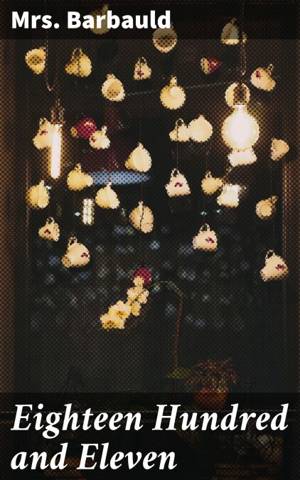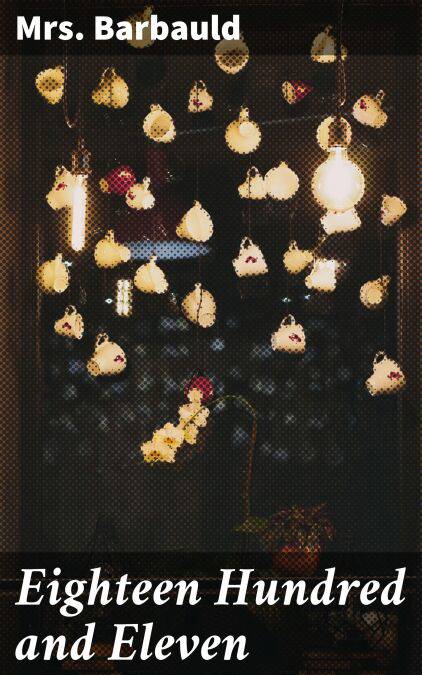
- Afhalen na 1 uur in een winkel met voorraad
- Gratis thuislevering in België vanaf € 30
- Ruim aanbod met 7 miljoen producten
- Afhalen na 1 uur in een winkel met voorraad
- Gratis thuislevering in België vanaf € 30
- Ruim aanbod met 7 miljoen producten
Zoeken
Omschrijving
In Mrs. Barbauld's 'Eighteen Hundred and Eleven', the author presents a scathing critique of British imperialism and political corruption in the early 19th century. Using a combination of poetry and prose, Barbauld beautifully intertwines the personal and political, shedding light on the societal issues of her time. The work is notable for its innovative blend of genres and its powerful commentary on social injustice. Barbauld's literary style is characterized by its poignant language, vivid imagery, and thought-provoking themes, making 'Eighteen Hundred and Eleven' a significant piece of Romantic literature. Mrs. Barbauld, a prominent feminist and abolitionist, was known for her radical views on social issues. Her experiences as a teacher, writer, and social reformer undoubtedly influenced the writing of this book. 'Eighteen Hundred and Eleven' showcases Barbauld's commitment to using her platform as a writer to advocate for change and challenge the status quo. I highly recommend 'Eighteen Hundred and Eleven' to readers interested in exploring the intersection of literature and politics, as well as those interested in feminist and abolitionist perspectives in Romantic-era writing. Barbauld's work remains relevant today, offering valuable insights into the power of literature to provoke social change.
Specificaties
Betrokkenen
- Auteur(s):
- Uitgeverij:
Inhoud
- Aantal bladzijden:
- 106
- Taal:
- Engels
Eigenschappen
- Productcode (EAN):
- 4064066107802
- Verschijningsdatum:
- 15/03/2020
- Uitvoering:
- E-book
- Beveiligd met:
- Digital watermarking
- Formaat:
- ePub

Alleen bij Standaard Boekhandel
+ 1 punten op je klantenkaart van Standaard Boekhandel
Beoordelingen
We publiceren alleen reviews die voldoen aan de voorwaarden voor reviews. Bekijk onze voorwaarden voor reviews.







